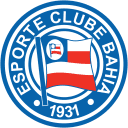UEFA Faces Scrutiny Over Crystal Palace's Europa League Eligibility Amid Multi-Club Ownership Concerns
Nottingham Forest seeks clarity from UEFA regarding Crystal Palace's Europa League spot amid multi-club ownership concerns, raising questions about fairness and regulations.

Nottingham Forest has formally requested UEFA to clarify the eligibility of Crystal Palace for the Europa League, citing concerns over multi-club ownership rules. This comes after Palace secured their historic FA Cup victory last month, defeating Manchester City 1-0 at Wembley, which earned them a spot in Europe for the first time in their history.
The Multi-Club Ownership Dilemma
At the heart of the issue is John Textor, an American businessman and owner of Eagle Football, which holds a 43% stake in Crystal Palace. Eagle Football also owns a 77% stake in Olympique Lyonnais (Lyon), who, like Palace, have qualified for the upcoming Europa League season. UEFA regulations stipulate that no individual or legal entity can hold a majority of shareholder voting rights in two clubs participating in the same European competition.
Potential Consequences for Palace and Lyon
If UEFA rules against Palace and Lyon, Lyon, who finished sixth in Ligue 1, would take precedence over Palace, who ended 12th in the Premier League. This could open the door for Nottingham Forest, who finished seventh in the Premier League and currently hold a Europa Conference League play-off spot, to potentially move up to the Europa League.
Palace’s Defense
Crystal Palace has vehemently defended their position, emphasizing that their FA Cup triumph and subsequent European qualification were achieved independently. The club insists that it operates entirely separately from Lyon, with no shared employees, strategies, or commercial collaborations. They argue that Textor’s stake does not influence the club’s operations.
Forest’s Proactive Approach
In contrast, Nottingham Forest has avoided similar issues after owner Evangelos Marinakis diluted his control of the club. Marinakis also owns Olympiacos and Rio Ave, but Forest complied with UEFA’s revised deadline of March 1 to address potential ownership conflicts.
UEFA’s Tight Deadline
UEFA moved the deadline for clubs to disclose ownership conflicts from June 1 to March 1 this year, citing the growing complexity of managing such cases. Palace, however, had not acted by the deadline, despite the possibility of FA Cup qualification.
The Broader Implications
This situation highlights the challenges UEFA faces in enforcing multi-club ownership rules across Europe. With the Europa League and Conference League qualification rounds set to begin in July, a swift resolution is crucial. If UEFA’s decision is contested, the matter could escalate to the Court of Arbitration for Sport (CAS), which has previously upheld similar rulings.
Analysis: Why Now?
The urgency stems from UEFA’s inability to manage the increasing number of multi-club ownership cases under the previous deadline. Nottingham Forest’s proactive approach contrasts sharply with Palace’s delayed response, underscoring the importance of timely compliance with regulations.
Conclusion
As UEFA deliberates on this complex issue, the outcome will not only impact Crystal Palace and Nottingham Forest but also set a precedent for how multi-club ownership is regulated in European football. The decision could reshape the landscape of continental competitions and influence future club ownership structures.































